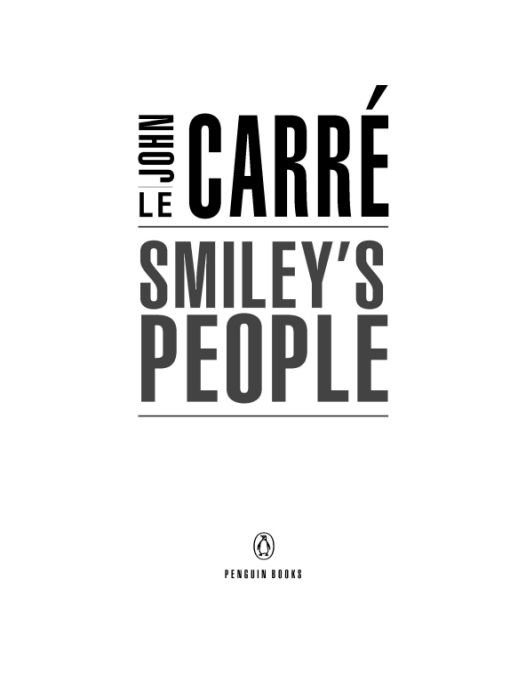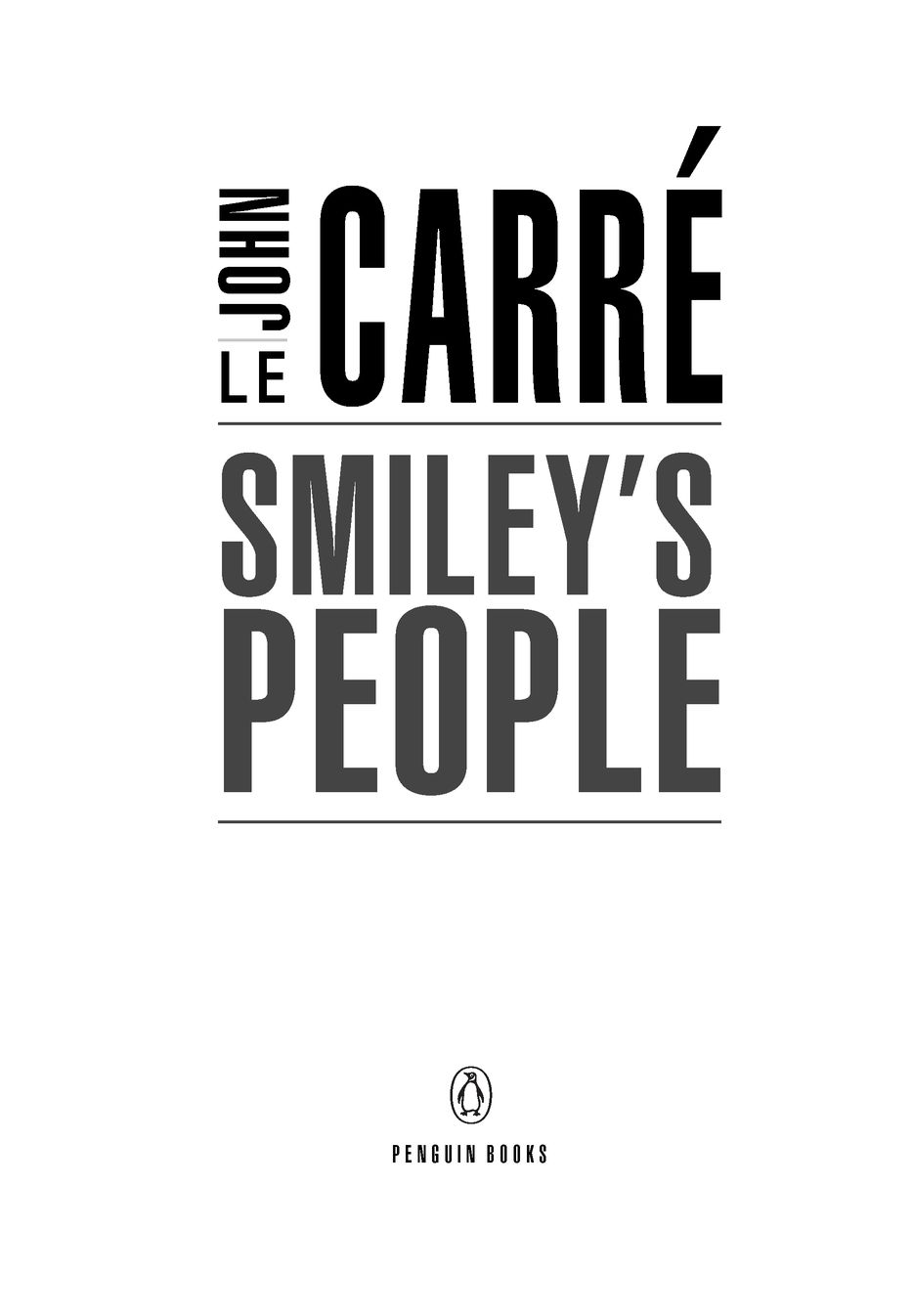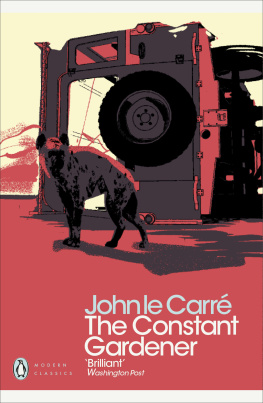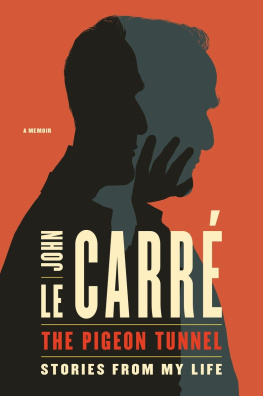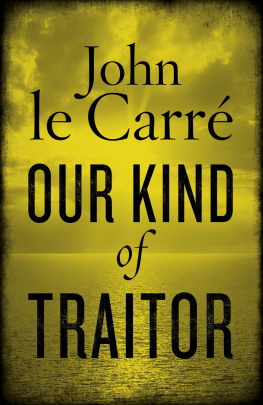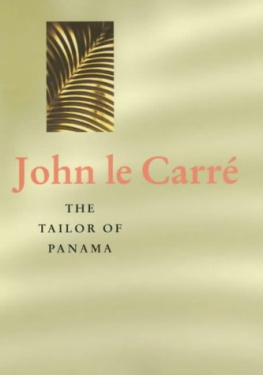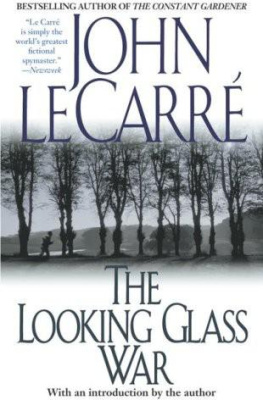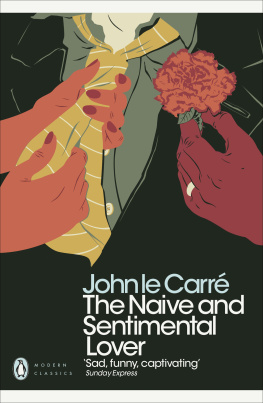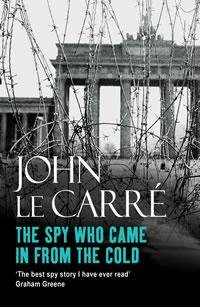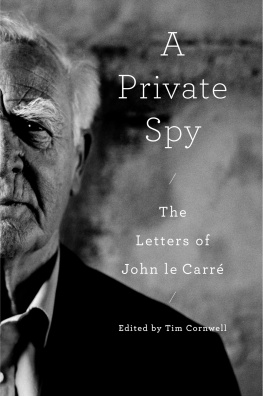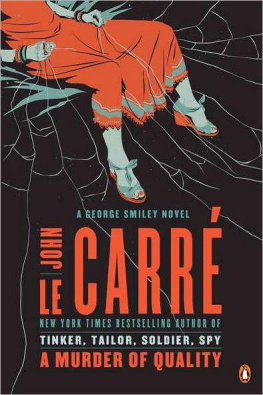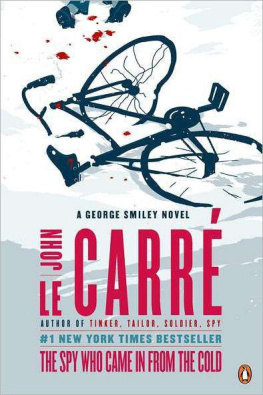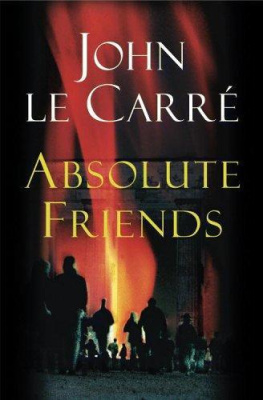Table of Contents
PENGUIN BOOKS
SMILEYS PEOPLE
JOHN LE CARR, the pseudonym for David Cornwell, was a member of the British Foreign Service from 1959 to 1964. His third novel, The Spy Who Came in from the Cold, became a worldwide bestseller. He has written twenty-one novels, which have been published in thirty-six languages. Many of his books have been made into films, including The Constant Gardener; The Russia House; The Little Drummer Girl; and Tinker, Tailor, Soldier, Spy.
For my sons,
Simon, Stephen,
Timothy, and
Nicholas, with love
INTRODUCTION
JOHN LE CARR
Cornwall, October 2000
Smileys People is the third and final novel in what became a trilogy recounting the duel of wits between George Smiley of the British Secret Service, which I called the Circus, and his rival and alter ego, code name Karla of the KGB, which I called Moscow Centre. The first novel of the trilogy was Tinker, Tailor, Soldier, Spy; the second, The Honourable Schoolboy. My grand ambition was to write not just three but a whole scad of themten or fifteendescribing an epic stand-off between my two protagonists that would cover every corner of the globe and collectively constitute a kind of Comdie Humaine of the cold war, told in terms of mutual espionage.
Spying, in all its different forms, was after all what the cold war had for a battlefield, and the spies were its ground troops. Hot wars like Korea and Vietnam might come and go, but spying was a continuum. The obsession of the two great economic systems with each others identity, intentions, strengths, and weaknesses had produced by the 1970s a state of mutual watchfulness and paranoia that seemed to know no bounds. Each side was ready to pay any sum, take any risk, tell any lie, to gain a seeming intelligence advantage over the other. Neither seemed able to grasp the utter sterility of this situation. It is no wonder that, when the players were finally able to look at one anothers cards, it tuned out that each had vastly exaggerated the others strategic capability. In that sense, the quest for intelligence took on at its worst an almost mythic form, with the spies not so much required to report the truth about the enemy as paint him in a form monstrous enough to keep the alarm bells ringing for all eternity.
And at the heart of this war of fantasies lay the war between intelligence services of the opposing Blocs themselvessurely the most sterile, the least productive, and the most addictive of all the games spies play, since it neither enlightens nor benefits the real world which gives them their daily bread, and turns the basically very simple trade of espionage into a never-ending maze of mirrors to which only professionals are admitted, and nobody looks the wiser. Along the way, I had preachier notions I wanted to slip into my great oeuvre, provided I could find a way to dramatise them, even seditious onesthe moral corruption that the cold war was leaving in its wake in the Western as well as the Communist world, for instance; and how the cold wars cult of lying was permeating every area of Western public life so that in this country alone there was scarcely an organ of government, from the parish pump upwards, that couldnt invoke the spectre of national security to disguise its bias, incompetence, and corruption. And Smiley would be my champion, my mouthpiece, my knight errant. And my readers would listen to him where they wouldnt listen to me. Because he was a better man than I was, and part of a grand story. And if Smiley on the insistence of some secret loyalty board of American-inspired witch-hunters was one day hauled before a kangaroo court of his peerssuch things happened in those daysand charged with harbouring sympathies incompatible with his secret work, then my readers would rush to his protection and send his accusers packing. In my head I had a lot of this stuff planned, and more of it in notebooks.
So what stopped me from fulfilling this grand design?
In part, Smiley did. The older I became, the more I wanted to write about younger passions and a changing society. There had been a time when Smiley had been my proxy father, almost my father confessor. But as my knight errant he cast too old an eye on the world. Where he saw change, it pained him. And where his corrosive eye and brave past had once provided me with a voice and a disguise, I was beginning to find these very assets a liability. Smiley was still my hero, but he had got above his station. He was too patient for me. His radicalism was the thinkers, not the doers. Ultimately, whatever his misgivings, he always knuckled down and did the job, even if he had to leave his conscience outside the door. Which meant he and the reader had the best of both worlds. Alec Guinnesss superb portrayal of him only added to my problems. When Tinker, Tailor, Soldier, Spy was first shown on the BBC, the only independent channel in those days obligingly staged a strike and for six precious weeks the entire British viewing public had to choose between BBC1 and BBC2. In consequence, we were pulling in audiences of up to eleven million for each episode, and the series became a kind of public institution, with endless chat on the radio about who understood how much or how little of the plot, and George Smiley briefly became a kind of myopic national hero, solving crossword puzzles that defeated the rest of us.
The problem went further than that. George Smiley, whether I liked it or not, was from then on Alec Guinnessvoice, mannerisms, the whole package. And I did like it. I liked it enormously. Once in a writers life, if hes lucky, an actor plays one of his characters to perfection. And Alec did that. He was as good at being Smiley as Cyril Cusack was at being Control in The Spy Who Came In from the Cold. Better. On the other hand, I didnt at all enjoy the fact that Smiley had somehow been taken over by my public. It was a thoroughly odd sensation, and not at all a pleasant one, when I went to get my character back after Alec had finished with him, to discover that I had been given used goods. I think I even felt a little bit betrayed.
Another thing that held me back from my great design was a drastic change in my writing methods for which to this day I cant quite account. Writing Tinker, Tailor had been a static exercise. I sat in Cornwall and scribbled. Though the story had scenes in Hong Kong, Delhi, and Prague, I had visited none of those places in order to write the novel. I had fed off my memory and imagination, and got away with it. Perhaps for this reason, when I came to write The Honourable Schoolboy, I took to the road in a very big way indeed. Basing myself in Hong Kong, I shot off to north-east Thailand, Laos, Cambodia, Vietnam, and Taiwan in quick order, and wrote, as it were, from the stirrup. Along the way, I tasted hot warfare for the first time, though mercifully very little of it, and by the time Id seen what I set out to see, I was beginning to regard Smiley and Karla as superfluous baggage. The Honourable Schoolboy was kindly received, but I still believe it might have been a better novel without their presence.
For all these reasons then, Smileys People was intended to be a requiem for the old spy, and to me that is what it remains. Smiley popped up again in

